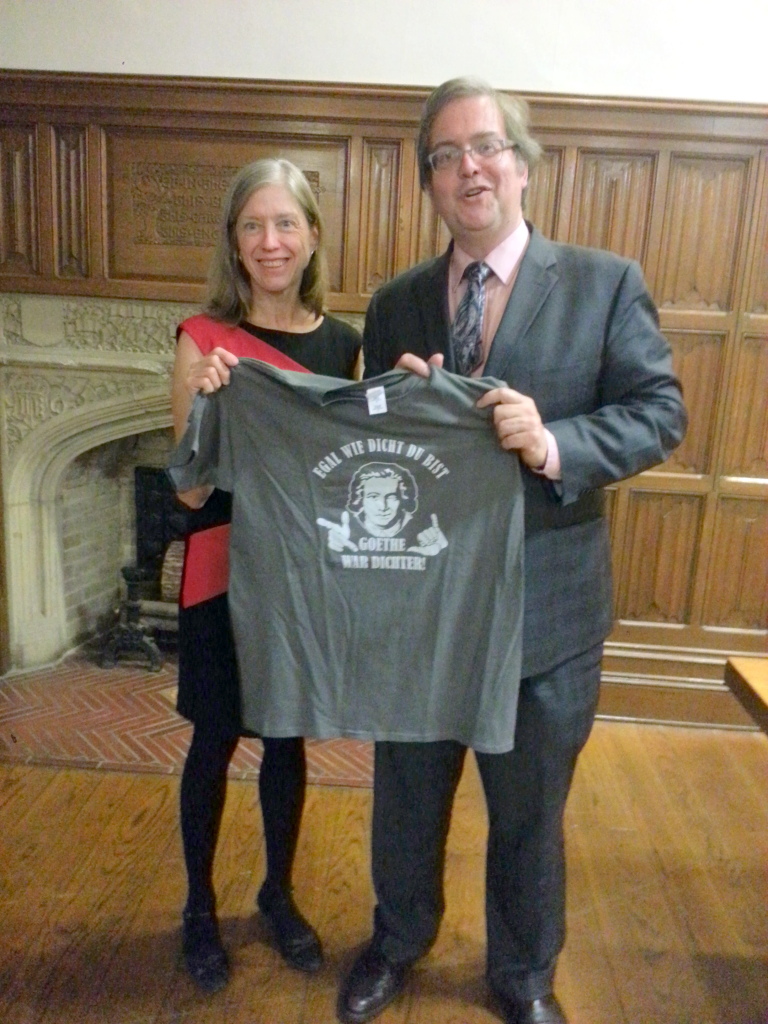After more than two years of planning, the 2014 Atkins Conference in Pittsburgh is quickly approaching. With the unflinching support and tireless work of our directors, Heather Sullivan and Horst Lange—who along with me have designed our program—as well as with Burkhard Henke’s technical and aesthetic expertise, everything is now falling into place. Please, therefore, think of this message to you as my last “breathless” invitation to join the festivities in Pittsburgh.The final program will be posted on the conference website in just a day or two, so take the time to review it and complete your personal schedules. They are sure be filled with events that will edify and entertain. At the top of the list are our two keynote addresses by our two distinguished colleagues Jane K. Brown and Anne Bohnenkamp-Renke, whom we will also honor with Life Memberships to the Society. But to launch things on Thursday evening after our Annual Business Meeting we are hosting a gala reception with enough food and drink (at least for most of us) to make a late dinner unnecessary. And for those arriving in the afternoon, after picking up your registration packets at the Wyndham Hotel, please consider taking the five-minute walk to the University Library to inspect an exhibition of rare books, manuscripts, and Goetheana in the Special Collections Department on the third floor, where you can also visit a display of books by members. Friday and Saturday, of course, will be the talks. In addition to the Keynote Addresses, these will include our Presidential Forum with Ellis Dye, Simon Richter, and Astrida Tantillo speaking to “Goethe and the Humanities Today” and some twenty panel with sixty papers, courtesy of you.About seventy-five people have already signed-up for the final event on Saturday evening at the Andy Warhol Museum, but you still have a few days to buy a ticket on the conference website, if you don’t want to be alone in your room at the hotel. In addition to drinks and food, we will nourish you with full access to all seven floors of the museum, just for our group, as well as a display of all five of Andy’s Goethe-serigraphs and an animation installation entitled “The Poodle Arrives.” If you haven’t heard already, we are providing bus transportation from the Wyndham, but all that information and more is in the “Program.”I’ll have to leave you now to check menus, rooms, and student workers. If all goes as planned, they will be the people wearing conference t-shirts who can help you out and answer your questions.Have safe journeys all to Pittsburgh. We’ll be seeing each other in just over a week!
Clark MuenzerUniversity of Pittsburgh
